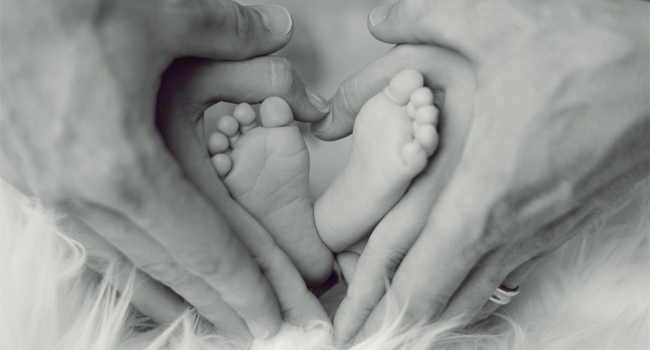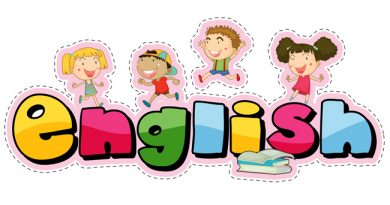5 Science-backed Reasons Why Hugs are Good for Kids

Simply holding your child in your arms is one of the best experiences in the world.
Aside from feeling good snuggling with your tiny tot, there are actually other great reasons why you should cuddle and hug your adorable little ones.
Cuddle Time Is the Best Time
Science has found several reasons why hugging your child can produce positive results.
As early as childbirth, skin-to-skin contact is already encouraged. The Kangaroo Care method is one such technique applied especially to preterm babies. This involves a baby being cuddled by a parent, typically the mother, with both parties bare-chested to promote skin-to-skin contact. This method is practiced to promote developmental care to babies and improve physiologic stability, increase breastfeeding rates, and reduce mortality and morbidity in low-birth infants, among others.
Research from the Washington University School of Medicine in St. Louis also found evidence that supports the advantages of cuddling. In their study published in the Proceedings of the National Academy of Sciences Early Edition, children with nurturing mothers have a larger hippocampus compared to children who were abused and neglected. The hippocampus is a key brain structure that is associated with emotions, learning, memory, and stress responses.
In addition, science also found that hugging triggers the release of the so-called “cuddle hormone” oxytocin. This “love drug” helps people feel good, bond more, and experience less stress. According to parenting adviser and bestselling author of the Calmer, Easier, Happier book series, Noel Janis-Norton, oxytocin is released by the brain after about eight seconds of physical contact. So the longer you hug your child, the better.
Here are five more reasons why science says hugs are best for kids:
1. Hugging helps make kids smarter
According to the survey results conducted by the Nationwide Children’s Hospital in Ohio, the more hugs a child receives during the developmental stages, the more his or her brain grows. Dr. Nathalie Maitre shared that the survey results, which revealed that more affection leads to a stronger brain response, highlight the connection between hugging or cuddling to a child’s brain development.
2. It keep them healthy
Lena Forsell and Jan Åström, in their study, “Meanings of Hugging,” found that even a 10-second hug can already help fight infections, lower risk of heart disease, reduce stress and fatigue, ease depression, and boost the immune system.
A nurturing touch of a loved one can also enhance a child’s growth. Several growth hormones, such as the insulin-like growth factor-I (IGF-1) and nerve growth factor (NGF), also increase when the oxytocin hormones are released.
3. It helps manage tantrums
Studies also found that a nurturing environment helps children do better in school. These kids are found to be more emotionally developed compared to their peers who lack a nurturing touch.
For example, when a temper tantrum flares up, a parent can affectionately hug a child to calm him or her down. In an early learning center in Dubai, teachers may provide hugs to a child only if it meets the needs of the young student.
According to Janis-Norton, cuddles can sometimes send a stronger message than words can in times when children are misbehaving. When parents are trying to understand their behavior or trying to reason with them, a hug can express an acceptance of the child’s strong feelings. It can also help re-establish the loving connection between the child and his or her parent.
4. It helps kids become socially adept
Kids’ ability to function socially is also affected by oxytocin, according to a Stanford University study.
Karen Parker, assistant psychiatry professor at Stanford and the author of the study, remarks that children with naturally high levels of the oxytocin hormone are more adept at communicating with others. They are also savvy in interpreting signals or situations.
Since oxytocin is released during activities where people are likely to bond, such as hugging, holding hands, and breastfeeding, the more you engage in these activities, the better these kids will function in social situations.
5. It makes kids happy
Children are likely to turn out to be less anxious adults when they have gone through positive experiences with regards to affectionate touch, free play, and family togetherness. This is based on research by Notre Dame psychologist Darcia Narvaez, which was published in the journal Applied Developmental Science in January 2016.
Hugs also help bolster confidence and self-esteem, and boost optimism. Children who are often hugged by their parents and loved ones also tend to have more secure and trusting relationships.
Hugs All the Way
With all the above-mentioned examples, hugging and other forms of affectionate physical contact can help in a child’s developmental progress. Not only will they grow up feeling loved, but they will also enjoy all the other benefits that a loving touch can give.
So go ahead. Hug, snuggle, and cuddle with your little one. The more you do, the more you can look forward seeing him grow into a responsible adult who can also give the same nurturing touch that will help the kids of tomorrow thrive and succeed.
Author Bio
Lama Chivi is the CEO of Blossom by Babilou Education in the UAE. Having lived in Dubai for over 30 years, she combines the best of international practice and local expertise into this leading British Curriculum Nursery, delivering a top-tier and high-quality offering to the MENA region. The mission of Blossom by Babilou Education is to support children in building their own identity, self-discovery and awakening while respecting their own pace and their uniqueness.




